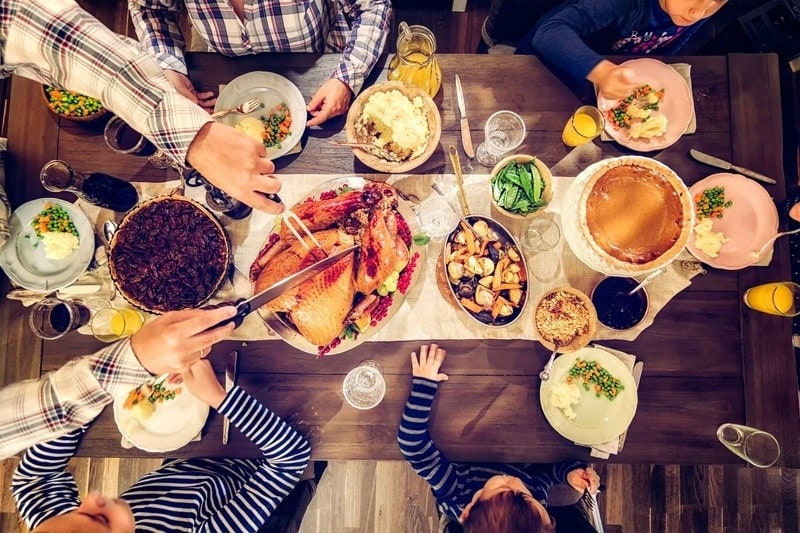Dreams have long fascinated humanity, serving as a window into our subconscious minds and offering insights into our deepest desires, fears, and emotions. Among the myriad of dream scenarios, those involving dinner hold a special place in our collective psyche. This article delves deep into the symbolism and psychological interpretations of dinner dreams, exploring their significance across various cultures, psychological perspectives, and spiritual traditions.
The Symbolic Nature of Dinner in Dreams
Dinner, as a symbol in dreams, carries a rich tapestry of meanings. At its core, dinner represents nourishment, not just for the body but also for the soul. It’s a time of gathering, sharing, and connection, making it a powerful symbol for our relationships, social status, and personal growth.
In dream symbolism, the act of eating dinner can represent:
- Fulfillment of needs and desires
- Social connections and relationships
- Abundance and prosperity
- Personal growth and self-nurturing
- Cultural and familial traditions
The specific elements of the dinner dream, such as the setting, the food served, and the people present, can all contribute to its overall meaning. For instance, a lavish dinner in a grand setting might symbolize aspirations for success or recognition, while a simple family dinner could represent a desire for closer familial bonds.
Cultural Interpretations of Dinner Dreams
Different cultures have varying interpretations of dinner dreams, often reflecting their unique values and traditions:
- Western cultures: Often associate dinner dreams with social status, personal achievements, and family dynamics.
- Eastern cultures: May interpret dinner dreams as related to spiritual nourishment, harmony, and balance in life.
- Mediterranean cultures: Might see dinner dreams as symbols of community, hospitality, and life celebration.
- Native American traditions: Could interpret dinner dreams as messages from ancestors or spirits, offering guidance or warnings.
- African cultures: Might view dinner dreams as reflections of communal bonds, ancestral connections, and spiritual sustenance.
These cultural interpretations highlight the universal significance of food and communal eating across human societies, while also showcasing the diverse ways in which different cultures assign meaning to these dreams.
Psychological Perspectives on Dinner Dreams
From a psychological standpoint, dinner dreams can offer valuable insights into our mental and emotional states. Renowned psychologist Carl Jung viewed dreams as a way for the unconscious mind to communicate with the conscious self. In this context, dinner dreams might represent:
- Emotional nourishment: The need for love, attention, or support in one’s life.
- Social anxiety: Fears or concerns about social situations and interactions.
- Power dynamics: Reflections on one’s position in social or professional hierarchies.
- Unresolved conflicts: Issues with family members or close relationships that need addressing.
- Personal growth: The assimilation of new experiences or knowledge into one’s personality.
Dr. Jennifer Parker, a dream analysis expert, explains, “Dinner dreams often reflect our deepest social needs and anxieties. The dinner table becomes a stage where we play out our interpersonal dynamics and confront our desires for connection and recognition.”
Spiritual Meaning of Dinner in Dreams
From a spiritual perspective, dinner dreams can carry profound significance. Many spiritual traditions view food as a metaphor for spiritual nourishment and growth. In this context, dreaming of dinner might represent:
- A spiritual feast or celebration
- The nurturing of one’s soul
- Divine provision or abundance
- Communion with higher powers or spiritual entities
Spiritual leaders often interpret dinner dreams as invitations to deepen one’s faith or spiritual practice. They may see these dreams as reminders to “feed” one’s spiritual self, just as one would nourish the physical body.
Biblical Meaning of Dinner in Dreams
In biblical contexts, dinner dreams can hold special significance. The Bible often uses feast imagery to represent spiritual truths or divine encounters. For instance, the Last Supper is a pivotal moment in Christian theology, symbolizing spiritual communion and sacrifice.
Dreaming of dinner in a biblical context might be interpreted as:
- An invitation to spiritual communion
- A reminder of God’s provision and abundance
- A call to fellowship with other believers
- A symbol of the heavenly banquet promised in religious texts
Biblical scholars often encourage individuals who experience such dreams to reflect on their spiritual lives and their relationship with the divine.
Common Dinner Dream Scenarios and Their Interpretations
- Eating dinner: This could symbolize satisfaction, fulfillment, or the assimilation of new experiences.
- Seeing dinner: Might represent opportunities or choices available to the dreamer.
- Preparing dinner: Could indicate a desire to nurture others or oneself, or preparation for an upcoming event or phase in life.
- Missing dinner: Might symbolize feelings of exclusion, missed opportunities, or neglect of one’s needs.
- Dinner with strangers: Could represent new social opportunities or anxiety about unknown situations.
- Formal dinner: Might indicate concerns about social status, etiquette, or professional advancement.
- Chaotic dinner: Could symbolize feelings of overwhelm in one’s personal or professional life.
- Unappetizing dinner: Might represent dissatisfaction with one’s current life situation or relationships.
Dinner Dreams and Personal Growth
Dinner dreams can offer valuable insights into our personal growth journey. They may highlight areas of our lives that need attention or nourishment. For example:
- A dream of a lonely dinner might indicate a need for more social connections.
- A dream of cooking an elaborate meal could suggest untapped creative potential.
- A dream of a family dinner might point to a desire for stronger familial bonds.
Dr. Sarah Thompson, a psychotherapist specializing in dream analysis, states, “Dinner dreams often serve as a mirror to our innermost desires and fears about our personal relationships and social standing. They can be powerful tools for self-reflection and growth when properly understood and analyzed.”
Dinner Dreams and Career Insights
Interestingly, dinner dreams can also offer insights into one’s career and professional life. Common interpretations include:
- A lavish business dinner might represent ambitions for career advancement.
- Struggling to eat at a dinner party could symbolize difficulties in professional social situations.
- Cooking dinner for others might indicate leadership potential or a desire to nurture a team.
Career coach Mark Johnson notes, “I often encourage clients to pay attention to their dinner dreams. They can reveal a lot about how a person perceives their professional relationships and aspirations.”
The Role of Colors in Dinner Dreams
Colors play a significant role in dream symbolism, and dinner dreams are no exception. Different colors of food, table settings, or dining rooms can add layers of meaning:
- Red: Passion, energy, or warning
- Green: Growth, abundance, or jealousy
- Blue: Tranquility, truth, or sadness
- White: Purity, clarity, or emptiness
- Black: Mystery, elegance, or foreboding

Practical Advice for Interpreting Dinner Dreams
For those who frequently experience dinner dreams, here are some practical steps to help decode their meaning:
- Keep a dream journal: Write down your dinner dreams immediately upon waking to capture details.
- Note emotional responses: Pay attention to how you feel during and after the dream.
- Identify recurring elements: Look for patterns in your dinner dreams over time.
- Consider current life events: Reflect on how the dream might relate to your waking life.
- Explore personal associations: Think about what dinner represents to you personally.
- Discuss with others: Share your dreams with trusted friends or a therapist for additional perspectives.
- Practice mindfulness: Being more aware in your waking life can lead to more vivid and meaningful dreams.
- Experiment with lucid dreaming: Learning to become aware within your dreams can allow for more intentional exploration of their meanings.
Conclusion
Dreams involving dinner offer a rich tapestry of symbolism and psychological insight. Whether reflecting our deepest desires for nourishment and connection or highlighting areas of our lives that need attention, these dreams serve as powerful tools for self-reflection and personal growth.
By paying attention to the details of our dinner dreams – the setting, the food, the company, and our emotions – we can gain valuable insights into our subconscious minds. These dreams may offer clues about our relationships, career aspirations, personal growth, and spiritual journey.
Remember that while general interpretations can be helpful, the most meaningful analysis of your dinner dreams will come from your personal associations and life experiences. By regularly reflecting on these dreams and their potential meanings, you can harness their power as a tool for self-discovery and personal development.
As you navigate the complex world of dinner dreams, remain open to the messages your subconscious mind may be sending. Whether it’s a call for more emotional nourishment, a nudge towards career advancement, or an invitation to deepen your spiritual practice, your dinner dreams can serve as a valuable guide on your journey of self-discovery and growth.

Was the dinner dream meaning helpful to you? Please share this dream with your friends.
